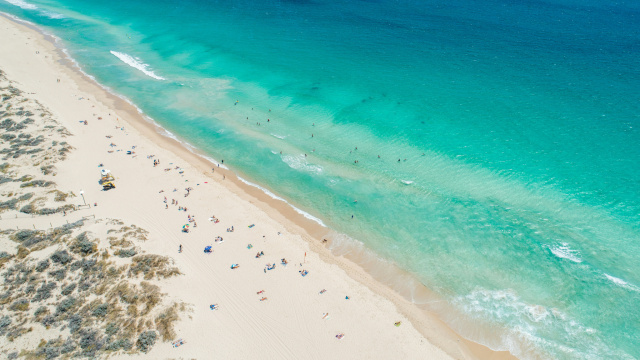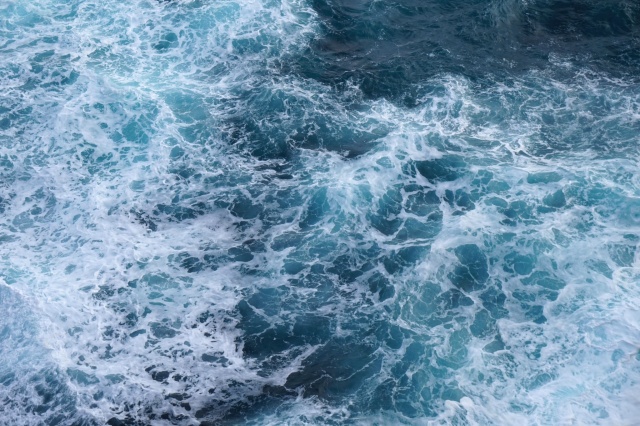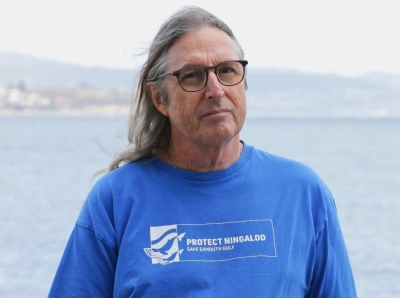Tim Winton: coastal Perth childhood
I grew up in in the coastal northern suburbs of Perth and they were really kind of raw new suburbs. The bush was just over the fence so we were always in contact with intact bushland and that made a difference.
Essentially we were living the before and the after. You know our homes were the after, and our yards were the after and we were growing buffalo grass where once native grasses and trees had been growing. So there's that.
We just spent so much of our childhood at the beach and in the water. I think it was that proximity to open wild nature that did it, you know.
I learnt to snorkel really early and probably by the time I was in my teens I was starting to see bigger creatures, I was swimming with blue gropers and that was pretty great.

We moved to the south coast and we lived in a whaling town. Whaling was still happening and when you see the world's biggest creatures chopped up for fertilizer and cosmetics, that kind of switches something on in you. Again, it was bewilderment and rage and I guess that's when I became actively interested in conservation.
One thing I have learnt from First Nations people over the decades is that people need country, but also that country needs people. That deep connection between the natural estate, the organic world and humans is really bound up.
When people say, "Oh, I love nature, but I don't like humans..." well, it just means you don't like nature. You know, we are expressions of the natural world. We came from this Earth, and only this Earth, and it's a one-time deal.
I mean, think of the odds of us being here as a species - that in all the dark, there's one rock that's running around a star that can produce organic life and we're a product of that life.
I think we just keep forgetting that we are part of nature.
We have to remember that we're creatures. I think that clarifies your thinking, and it changes your priorities.


Tim Winton
I grew up in in the coastal northern suburbs of Perth and they were really kind of raw new suburbs. The bush was just over the fence so we were always in contact with intact bushland and that made a difference.
Essentially we were living the before and the after. You know our homes were the after, and our yards were the after and we were growing buffalo grass where once native grasses and trees had been growing. So there's that.
We just spent so much of our childhood at the beach and in the water. I think it was that proximity to open wild nature that did it, you know.
I learnt to snorkel really early and probably by the time I was in my teens I was starting to see bigger creatures, I was swimming with blue gropers and that was pretty great.

We moved to the south coast and we lived in a whaling town. Whaling was still happening and when you see the world's biggest creatures chopped up for fertilizer and cosmetics, that kind of switches something on in you. Again, it was bewilderment and rage and I guess that's when I became actively interested in conservation.
One thing I have learnt from First Nations people over the decades is that people need country, but also that country needs people. That deep connection between the natural estate, the organic world and humans is really bound up.
When people say, "Oh, I love nature, but I don't like humans..." well, it just means you don't like nature. You know, we are expressions of the natural world. We came from this Earth, and only this Earth, and it's a one-time deal.
I mean, think of the odds of us being here as a species - that in all the dark, there's one rock that's running around a star that can produce organic life and we're a product of that life.
I think we just keep forgetting that we are part of nature.
We have to remember that we're creatures. I think that clarifies your thinking, and it changes your priorities.

You might like...

Tim Winton: his new novel and our climate emergency

Species, emotion and place

From surfing came a love of the ocean

An irreplaceable connection to place
Newsletter
Sign up to keep in touch with articles, updates, events or news from Kuno, your platform for nature
